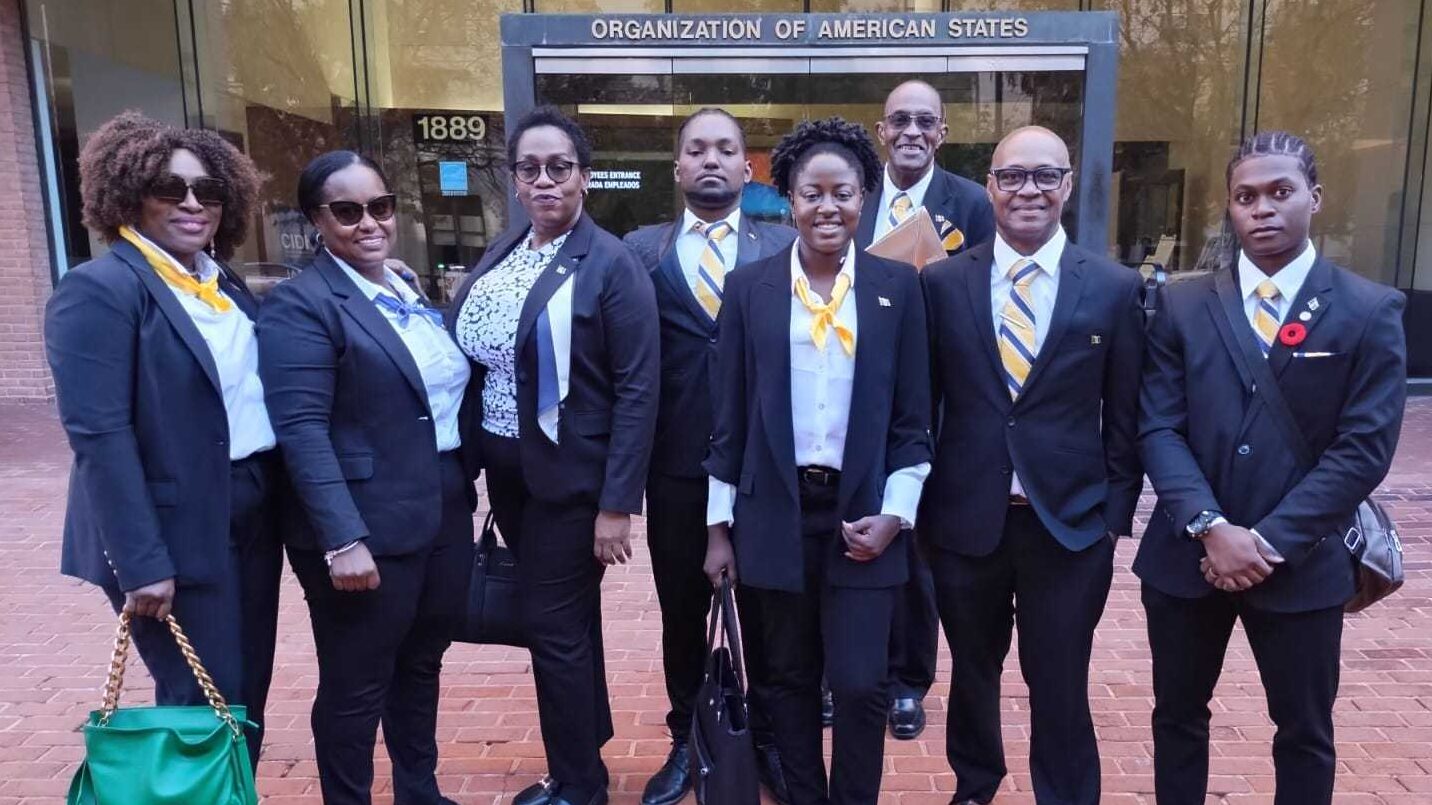IACHR Urges Barbados to Refine Cybercrime Bill, Offers Assistance: Insights from Landmark Hearing

November 12, 2024
The Inter-American Commission on Human Rights (IACHR) urges Barbados to refine its Cybercrime Bill following a contentious hearing. Advocacy groups express concerns over potential impacts on rights.
The Inter-American Commission on Human Rights (IACHR) on Monday urged Barbados to continue refining its proposed Cybercrime Bill following a contentious, landmark hearing at the hemispheric body in Washington, DC.
The IACHR, an autonomous organ of the Organisation of American States (OAS), also offered its assistance in refining the bill.
The hearing marked the first time in 20 years that the IACHR has reviewed human rights issues in Barbados.
Both Barbadian government representatives and a local advocacy group calling itself the Loyal Opposition delivered oral arguments on the group’s claims of significant concerns surrounding the bill’s potential impact on rights to free speech, religion and thought.
The matter was taken before the IACHR by the activist group demanding major revisions to the bill. The group claims that the legislation, in its current form, threatens fundamental human rights even as it seeks to combat the growing prevalence of cybercrime.
Among those representing the Loyal Opposition were religious leader Dr Ferdinand Nicholls, spoken word artist Timon Howard, youth advocate Shaquanie Hunte and social media influencer Don Leacock. The group’s legal counsel, international lawyer Julio Pohl, argued that the bill poses a particular risk to freedom of expression for social media users, artists, religious advocates, and women’s groups.
In defence of the Cybercrime Bill, international attorney Robert Volterra, representing the government, insisted the legislation was necessary to fight modern cyber threats. Volterra stated that the legislative process, which began early in 2023, has already involved “robust, transparent, free, accessible” consultation with the public and civil society and aims to align with global standards, such as the Budapest Convention and the draft UN Convention Against Cybercrime.
“The Cybercrime Bill…is fully compatible with the rights to freedom of thought and expression, and freedom of conscience and religion, as protected under the American Convention on Human Rights,” Volterra asserted, adding that the controversial bill may still undergo further review and amendments.
In sharp contrast, Pohl, appearing on behalf of the Loyal Opposition, countered that the government’s claim of inclusive consultation was undermined by its dominance over Parliament, which limits political dialogue.
“The opposition has just one seat in parliament,” he said, noting that this imbalance hinders a meaningful exchange of views.
He further criticised the government’s response to public feedback, alleging that the main result of consultations was a decision to increase penalties in the bill rather than address the underlying concerns.
“The only conclusion of those submissions was to increase the penalties from seven years to ten in jail and from $70 000 to $100 000,” he argued. “If this is called listening to the people in Barbados, I don’t know what is called ignoring them.”
The escalating tensions during the hearing prompted IACHR President Edgar Stuardo Ralón to intervene, reminding both parties that the session was an “international dialogue” intended to facilitate constructive conversation rather than escalate into confrontation.
In response to the submissions, Commissioner Gloria De Mees also described the matter as “very important”, stressing the need to clarify the bill’s language, especially where vague terms might impact freedoms.
She encouraged Barbados to “specify language that is vague, maybe ambiguous, to make it very clear what is the purpose” as well as the limitations of the bill.
De Mees offered the IACHR’s technical assistance in refining the legislation.
The IACHR president also put on record the commission’s readiness to support Barbados in crafting a well-defined Cybercrime Bill, as he urged ongoing dialogue to ensure the legislation strikes a balance between safeguarding national security and preserving essential freedoms.
“We might be able to buttress your efforts to come up with a text,” Ralón said.
In reaction to the day’s developments, Attorney General Dale Marshall signalled a positive response to the IACHR’s observations.
He said the commissioners had endorsed the importance of protecting Barbadians from cybercrime, and recognised that the government has been proactive in providing significant opportunities for civil society groups to be consulted and share their views on the bill during the legislative drafting process.
“Commissioner [Andrea] Pochak noted that significant public consultation such as there has been in Barbados about the Cybercrime Bill is rare in most countries,” the Attorney General pointed out in a statement issued late Monday. According to him, Pochak also highlighted that freedoms of expression and religion are not without limits, as certain restrictions may be justifiable under the law.
Marshall added that Commissioner De Mees noted “the importance of consensus about the need for protections from cybercrime that the bill provides”.
He said she also observed that the hearing illustrated the importance of public dialogue on such significant legislation.
“She noted that there had been significant dialogue between the government and civil society already in Barbados. She noted that some in Barbados felt that the time for dialogue about the bill was now passed whilst others felt that there was still room for more dialogue, particularly to clarify language about the purpose, scope and limitations of the bill,” Marshall said.
He further cited IAHCR President Ralón’s request for clarity on whether the legislative process had concluded or if the bill could still be amended, which was confirmed to be ongoing.
Ralón indicated that the “rapporteurship on freedom of expression” would continue monitoring developments surrounding the bill.
While the IACHR can issue recommendations, its recommendations are not binding or legally enforceable.
shannamoore@barbadostoday.bb
emmanueljoseph@barbadostoday.bb


